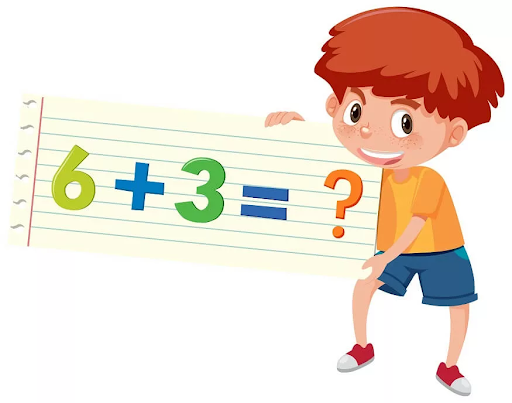Hey there, parents and educators! Ever watched your little one stare blankly at a maths worksheet, their pencil hovering like it’s afraid to commit? Or maybe you’ve caught them muttering under their breath about fractions being the enemy. If that sounds familiar, you’re not alone. In today’s fast-paced world, where kids juggle school, sports, and screen time, mastering maths at the primary level can feel like climbing a slippery slope. That’s where primary maths tuition steps in – not as a crutch, but as a trusty ladder to help them reach new heights. Let’s dive into why this could be the game-changer your child needs, and how to make the most of it.
What Exactly is Primary Maths Tuition?
Primary maths tuition is all about giving kids a leg up in their early years of learning numbers and concepts. It’s targeted tutoring for children typically aged 5 to 12, zeroing in on basics like arithmetic, geometry, and problem-solving. What sets it apart from regular school lessons? It’s more personal. Instead of a one-size-fits-all approach in a crowded classroom, tuition focuses on the individual child. Whether it’s one-on-one sessions or small groups, the goal is to make maths click in a way that sticks.
Think of it like this: school teachers paint with broad brushes to cover everyone, but a tutor uses fine details to fill in the blanks. With curriculums ramping up in complexity and classes often overflowing, it’s easy for some kids to get lost. Tuition acts as that bridge, helping them catch up or even surge ahead without the pressure of peers watching.
The Key Benefits: More Than Just Better Grades
One of the biggest wins with primary maths tuition is the confidence boost it delivers. Picture a child who once dreaded maths homework now tackling it with a grin. That shift happens because tuition celebrates progress, no matter how small. Nailing a tricky multiplication table or figuring out a word problem can turn “I can’t do this” into “I got it!” Research backs this up – early support in maths often leads to stronger performance across the board, not just in numbers.
But it’s deeper than scores. Tuition builds a growth mindset, teaching kids that errors are part of the process, like trial and error in a game. Plus, the customized learning is a game-changer. If your child breezes through addition but trips over division, a tutor can pivot instantly. They might use everyday scenarios, like sharing candies to explain division or budgeting pocket money for subtraction. Suddenly, maths isn’t some distant subject; it’s relevant and real.
How to Choose the Right Tuition for Your Child
Not every tuition program is a perfect fit, so picking wisely matters. Start by assessing your child’s style – do they learn best with visuals, hands-on activities, or stories? Seek out tutors with solid experience in primary education, perhaps those with teaching certifications. Chat with other parents for recommendations; their experiences can highlight gems or red flags.
Online options are plentiful these days, but always check reviews and request a trial. Costs vary – expect $20 to $50 per hour based on where you live – but view it as an investment. And remember, group sessions can be cheaper and add a social element, where kids learn from each other.
Avoiding Common Pitfalls and Practical Tips
A big mistake? Piling on too many sessions. Tuition should enhance school life, not overwhelm it. Stick to one or two weekly slots to leave room for play and rest. As a parent, stay involved – discuss progress with the tutor and weave in fun at home, like maths apps that feel like games.
Encourage questions too. If your kid wonders why maths even matters, tie it to real life: cooking recipes, sports stats, or planning a trip. This builds curiosity and makes learning feel natural.
Does Every Kid Really Need Extra Help?
Short answer: no, but many benefit. If your child is acing maths without stress, fantastic. But for those facing hurdles – like shyness in class or specific challenges such as learning differences – tuition can be transformative. Look at places like Singapore, where tuition is commonplace and helps propel their students to top spots in international rankings. It’s about tools for life, not chasing perfection.
Modern primary maths goes beyond memorizing; it’s about thinking critically. Tutors break down complex ideas, using props like blocks for shapes or stories for logic puzzles. This hands-on method turns abstract concepts into something tangible.
Making Maths a Family Adventure
Don’t leave it all to the tutor – get the whole family involved. Bake together and measure flour, or play counting games during car rides. Board games with strategy elements sneak in maths without the pressure. It’s about creating positive associations, so homework doesn’t feel like a battle.
Real-Life Stories: Parents Share Their Wins
I’ve heard from families who’ve seen real change. One parent described her daughter going from tears over tests to excitement about challenges after just a few months. Another family loved group tuition for the friendships it built. These tales show that with the right setup, kids don’t just improve – they thrive.
Budget-Friendly Alternatives
If funds are tight, don’t worry. Free tools like Khan Academy videos or library workshops offer great support. Consistent practice at home can mimic tuition’s effects, turning daily routines into learning moments.
Wrapping It Up: A Foundation for the Future
Primary maths tuition isn’t a quick fix, but it’s a powerful ally in building lifelong skills. From sharper reasoning to everyday problem-solving, it equips kids for a number-filled world. If you’re considering it, explore options and involve your child. You might just uncover a budding maths whiz. After all, every expert started as a beginner with a bit of guidance.
Keep an eye for more latest news & updates on Tribune!



